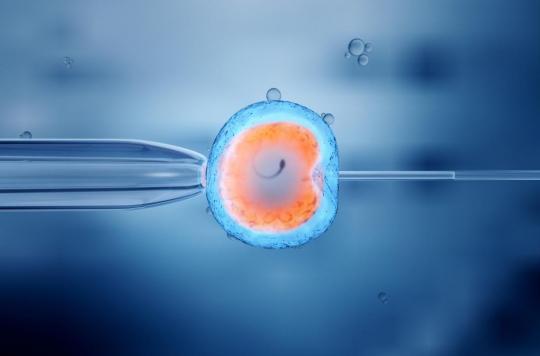A Frenchwoman wishes to have a third child from her deceased husband. They had conceived embryos, during his lifetime, by PMA, in 2018.

Justice refuses a post-mortem embryo transfer. The administrative court of Rennes rejects the request of a Finistère woman who wanted to transfer to Spain embryos conceived with her husband, who died last April, with a view to a third pregnancy.
The refusal of the CHU last August
The Finistère would like the embryos to be transferred to a reproduction center in Barcelona, because Spanish law allows post-mortem procreation within 12 months of death. Last August, the university hospital center (CHU) of Brest announced by letter its refusal, on the grounds that the “transfer of post-mortem embryos was not authorized” in France. The woman had applied to the administrative court to have this decision annulled.
A joint decision
In 2014, the couple had their first child. The second, born in 2018, is conceived by medically assisted procreation (PMA) due to the health problems of the husband. Five embryos are stored at Brest University Hospital. It is with these embryos that the woman wishes for a third pregnancy. “There is a common will, specifies his lawyer, Nicolas Josselin, to France Blue. Monsieur has written a letter in which he asks that the embryos can be transferred if he were to die prematurely.”
Post-mortem MAP refused by the government
This case comes just over two months after the adoption of the bioethics law in the National Assembly. It provides for the opening of PMA to all women, regardless of their marital status. In mid-December, in the Assembly, a special commission, in charge of examining the text, auditioned several ministers. During this exchange, Senator Élisabeth Doineau spoke of the “inhuman nature” of refusing a woman to conceive a child with the gametes of her deceased spouse, when she could do so with the gametes of a stranger. Frédérique Vidal replied that this subject had been “source of many discussions” and “abyssal questions”. For the moment, this measure is excluded from the bill, for several reasons according to her: the necessary time for mourning, possible family pressures or the question of inheritance.
For the plaintiff’s lawyer, Catherine Logéat, the decision of the administrative court of Rennes is “very harsh” in this context. According to her, accepting the PMA “for single people implies asking the question about the cases of couples whose husband has died”, she declared to franceinfo. The woman intends to lodge an appeal before the Council of State.
.















